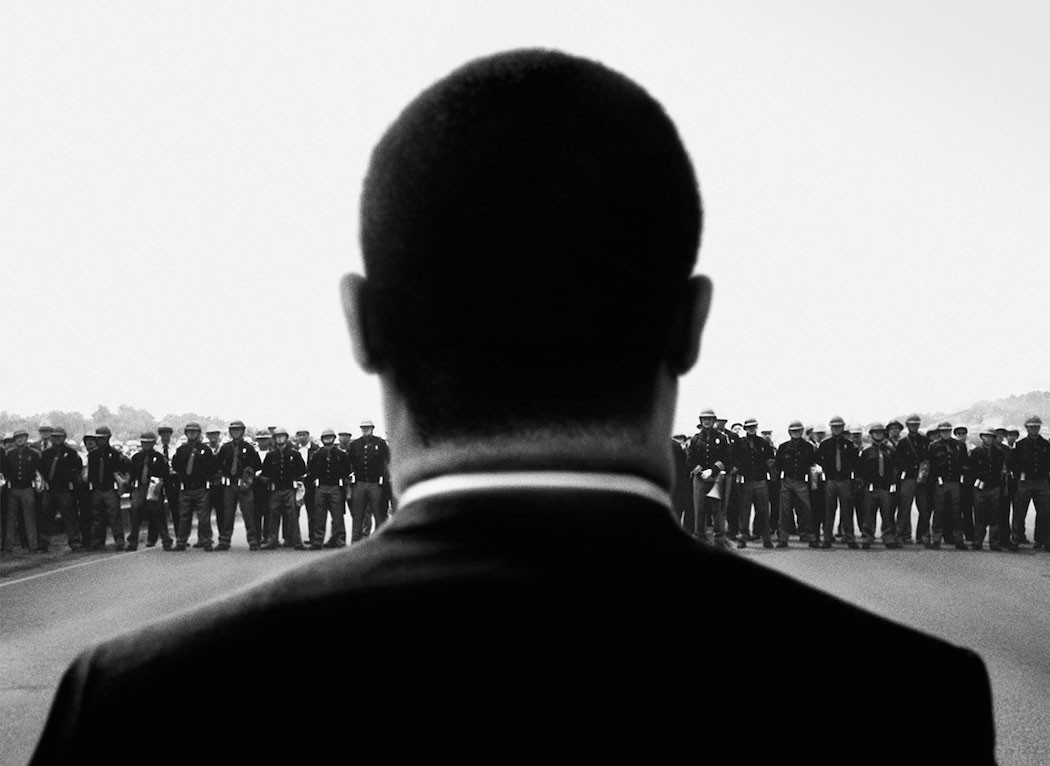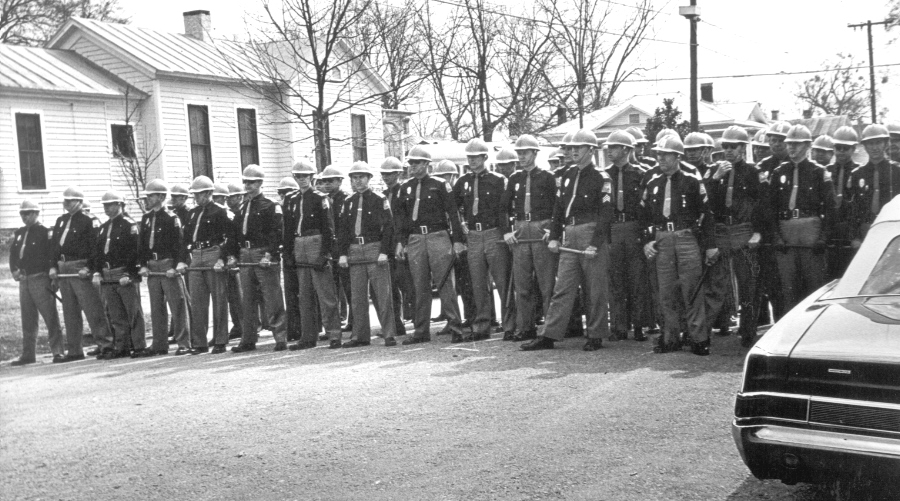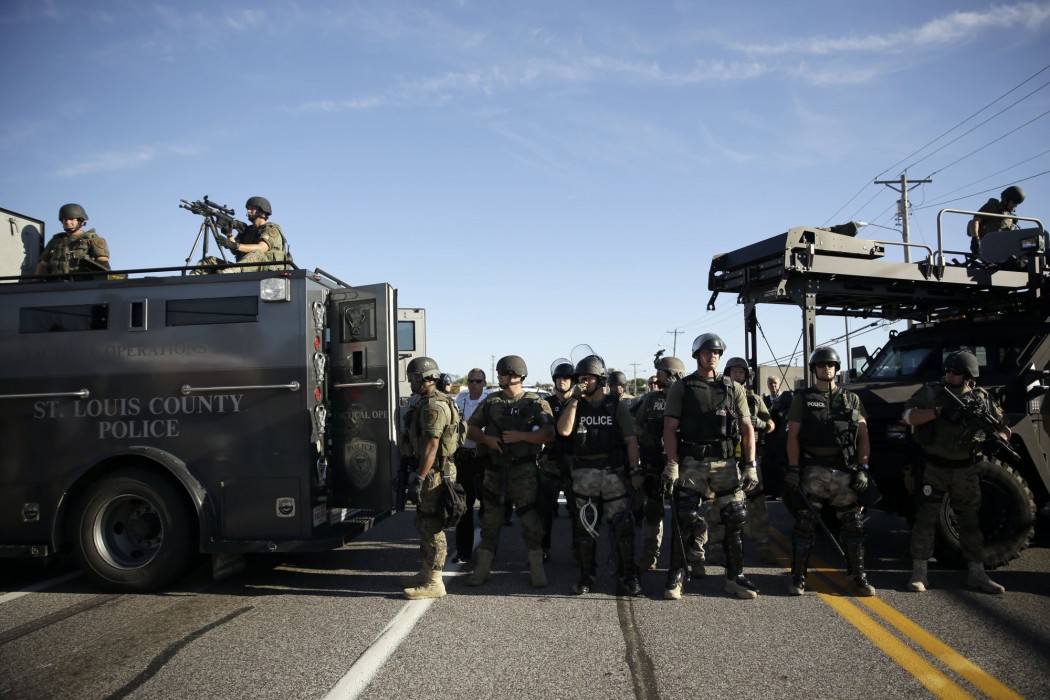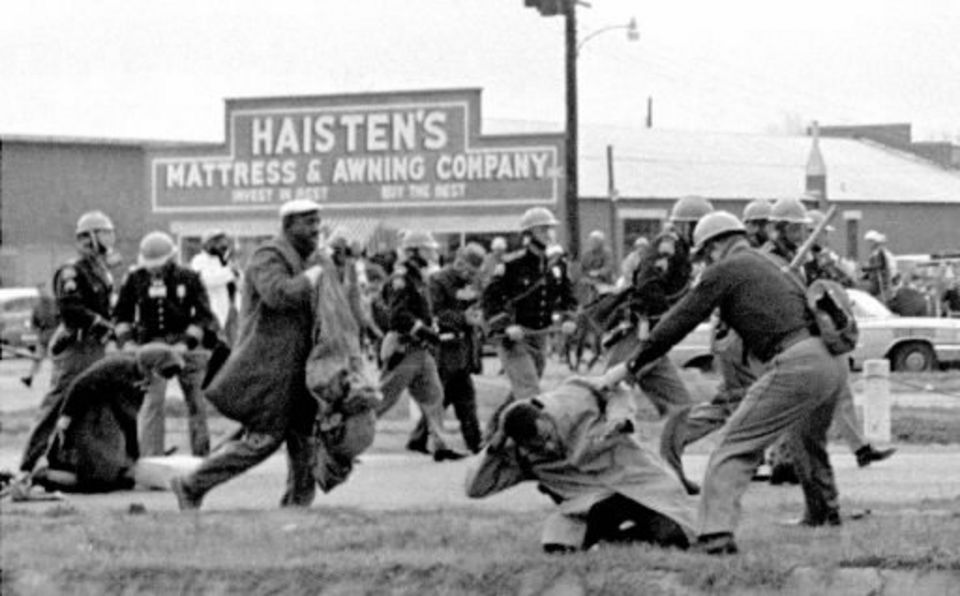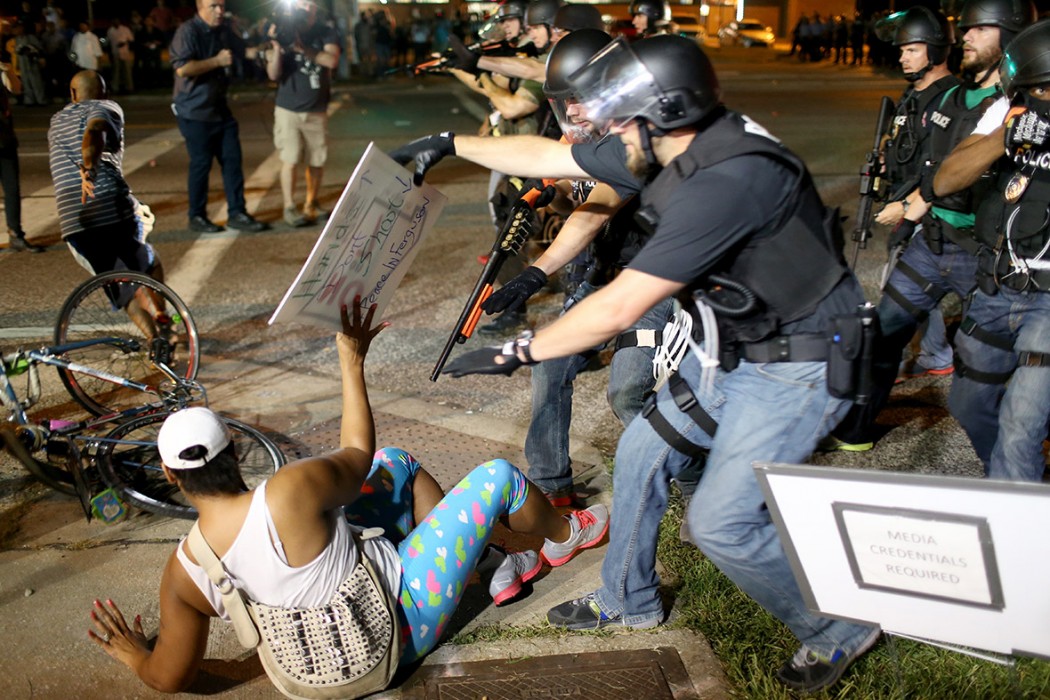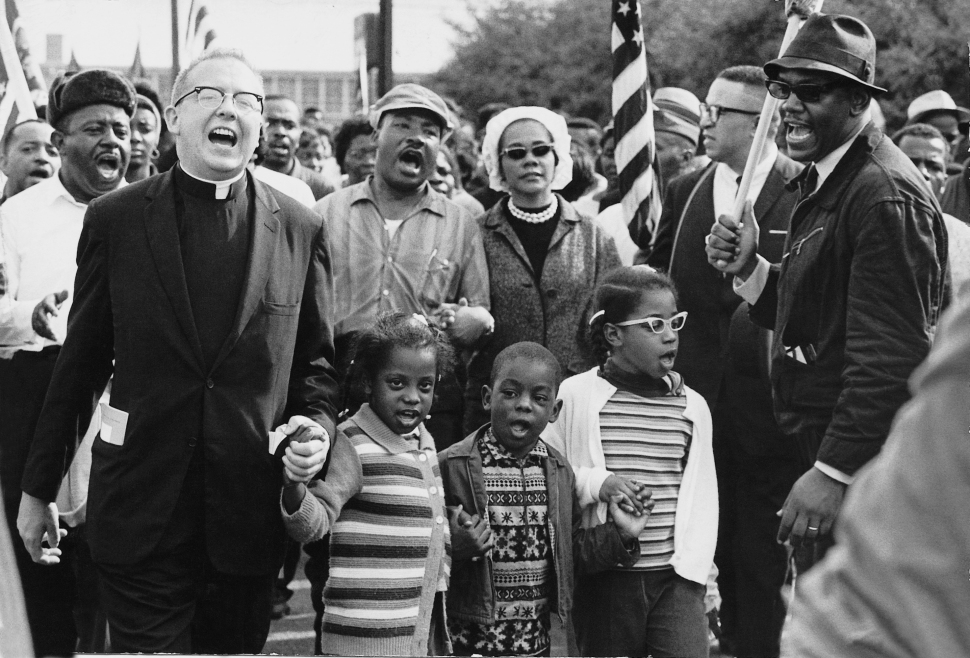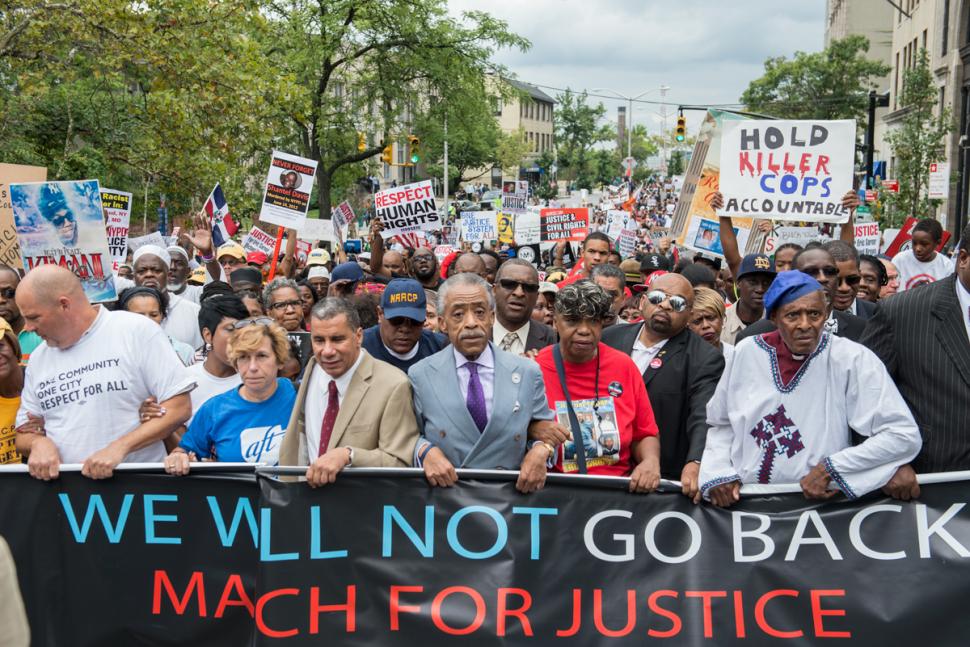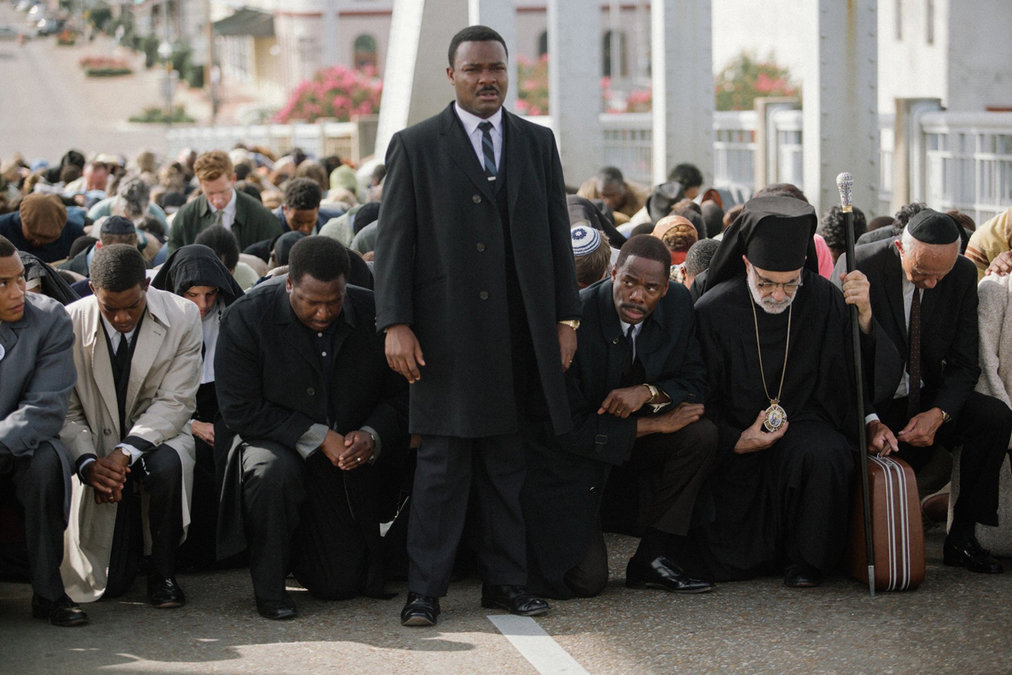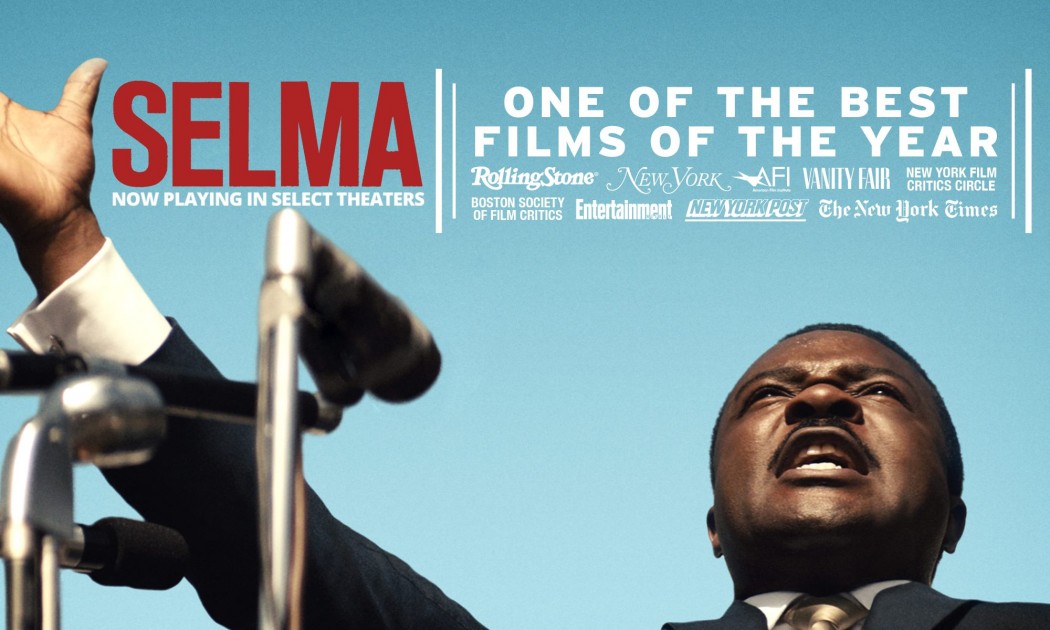For months, I have waited for the release of Selma – a film documenting an intense three-month period in 1965, when Dr. Martin Luther King, Jr. led a dangerous campaign to secure equal voting rights in the face of violent, racist opposition in Alabama. There has been much controversy recently as it was not nominated for the best director or best lead actors Oscar categories in the 2015 Academy awards, set to take place this Sunday (it did however get the best picture nomination). I finally got the chance to watch the film a few weeks ago and, as always, here is my honest review of one of the most eagerly anticipated films of the year.
If you have not had a chance to watch the trailer of Selma, please take a moment to watch it here.
THE HISTORY
My own personal obsession with civil rights history is what first enticed me to this film; combined with the hope that I could learn something new about one of my greatest inspirations – Dr King.
However, what excited me even more was the idea that other people, with less interest or knowledge in civil rights, would see it. The film forces white and black audiences – that have previously denied or remained ignorant to the struggle for equality of previous generations – to see racist brutality in graphic detail. 12 Years a Slave highlighted the atrocities of slavery and put it on the big screen. However, no matter how intense and disturbing the images of rape and torture were, American audiences could go home satisfied that this was in the past as the slaves were emancipated over 150 years ago.
In contrast, Selma forces a brutal reality that can not be ignored. It highlights that up until 1965, most black people in confederate southern states were still denied the right to vote. Jim Crow had been abolished, however racist public officials such as Governor George Wallace and Sheriff Jim Clark were consistently voted into power by an all white electorate. Black people were still not allowed on a court jury, as without the right to vote, you were not allowed to pass judgement in court. Therefore, black people were still unfairly persecuted by all white juries, and white racists still went free as these same juries would pardon their acts of murder and terror on black civilians.
A MODERN PERSPECTIVE
Even though I knew that the film was going to expose these home truths, I wasn’t emotionally prepared for how relevant and real the scenes of violence were going to be. The film showed us how Jimmie Lee Jackson, a 26 year old black church deacon who attended the Selma marches with his grandfather and mother, was murdered by James Bonard Fowler, an Alabama state trooper. What we didn’t see in the film is that a grand jury declined to indict Fowler in September 1965, thus allowing this killer to avoid justice for over 40 years all in the name of ‘self defence.’ Sound familiar?
The scenes of police brutality, the lack of justice and the speech by MLK that followed could not have been more relevant to events in 2014. King’s speech went as follows:
“A state trooper pointed the gun, but he did not act alone.
He was murdered by the brutality of every sheriff who practices lawlessness in the name of law.
He was murdered by the irresponsibility of every politician, from governors on down, who has fed his constituents the stale bread of hatred and the spoiled meat of racism.
He was murdered by the timidity of a federal government that can spend millions of dollars a day to keep troops in South Vietnam and cannot protect the rights of its own citizens seeking the right to vote.
He was murdered by the indifference of every white minister of the gospel who has remained silent behind the safe security of his stained-glass windows.
And he was murdered by the cowardice of every Negro who passively accepts the evils of segregation and stands on the sidelines in the struggle for justice.”
-Rev. Martin Luther King, Jr, 3rd March 1965
The police on the frontline, attacks on the peaceful protestors and the march that united people of all races (which took place after President Johnson signed the Voting Rights Act of 1965) were all executed perfectly within the film and captured the passion of the people at the time. Again, these all seemed too familiar in relation to recent events. Here are some images from the march in 1965 in comparison to protests in 2014 (click on the first image to start the slideshow)…
The overwhelming message I received from this was that we cannot sit in silence in the face of adversity. It is our duty to not ‘stand on the sidelines in the struggle for justice’ but continue to protest in response to the modern injustices people face today.
CRITICISMS
As much as the film captured the passion of the activists who marched, as well as the great amount of danger they put themselves through just to achieve equal rights, I did have a few issues with the film.
A SLOW START
The film was 147 minutes long, however some points at the beginning of the film moved painfully slow. I can understand that the director wanted to show a more human side to King’s character, however it took a while for any form of tension to be built or any clear direction of where the film was going to be formed.
LACK OF CLEAR HISTORICAL DATA
Furthermore, even though the film was historical and had the opportunity to teach people more about the event, there was a noticeable lack of dates shown. Throughout the film, writing would come up across the screen highlighting to the audience that throughout this time, everything that King and his activist friends were doing was being watched and logged by the American government. Even phonecalls and recordings from within Coretta and Martin’s home were recorded. However, rather than stating what date each recording was logged, it simply told us the time.
This left me largely disorientated throughout the film. An example of this was when Malcolm X went to visit Coretta in a church regarding a speech he planned to do in Selma (what church and on what date, I do not know). Rather than actually seeing Brother Malcolm’s speech, shortly after in the film, King referred to Malcolm X’s death in his own speech. No reference to when or how he was killed was mentioned and the film swiftly moved on.
The time between each march wasn’t expressed either, nor was the actual date of Jimmie Lee Jackson’s death confirmed. In the film, he died instantly from a gunshot wound in his mother’s arms. In reality, it took almost a week before he died in hospital.
LACK OF CHARACTER DEVELOPMENT
Even more annoyingly, a lot of the characters that were repeatedly shown in the film were not explained. Rather than identifying each of the key players in the march and explaining their impact in detail, a lot of the time it felt like you were part of an exclusive club if you knew who they were or what was going on. Most annoying was the lack of information given about the Student Nonviolent Coordinating Committee (SNCC), or ‘Snick.’ The SNCC representatives, James Foreman and John Lewis (played by Trai Byers and Stephen James – pictured below), were consistently in the film without much clarity. Foreman seemed angered by the presence of MLK with little-to-no explanation as to why. He kept referring to the work they had already completely before King’s arrival, but no explanation of what this work was was mentioned.
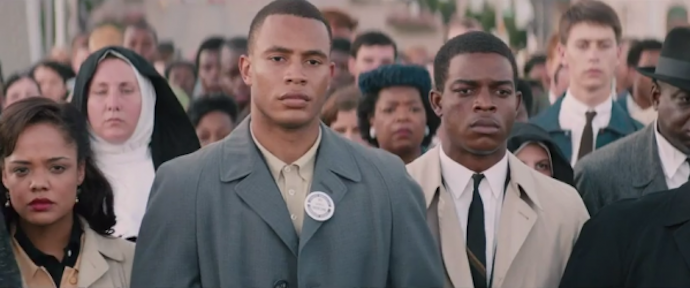
OVERALL…
I felt the film was visually stunning, but simply needed some tweaking to really drive home the message of what happened throughout the three months it was set. Due to this I would give the film an 8 out of 10, as if you are a history geek and a stifler for detail like me, the skimming over of facts wasn’t good enough to satisfy my thirst for knowledge.
Therefore, do I think the film should get an Oscar? I’d say no. The imagery within the film is masterfully created, and the intergration of images from the actual events makes the film particularly powerful. However, there are a lot of holes, and I do not feel that simply because it is a black film I should instantly support it getting an Oscar.
However, should David Oyelowo – the British/Nigerian actor who played Martin Luther King Jr – get an Oscar? YES… and thats not because of my own Nigerian/British cultural bias! Oyelowo played King seemlessly, and at times I would find myself fully believing I was seeing and hearing King in front of me. I am so proud of both Oyelowo and Carmen Ejogo (who played Coretta Scott King) flying the flag for British/Nigerian actors everywhere. The fact that neither of them were nominated in this year’s Oscars is criminal.
I would definitely recommend that everyone goes to watch this film. One positive I received from the pot holes in the plot is that I have been encouraged to do yet more research on the event. If other people also feel the need to learn more about civil rights history having watched this film, then Selma has successfully managed to keep King’s legacy alive.
What were your thoughts on the film? Comment below.



